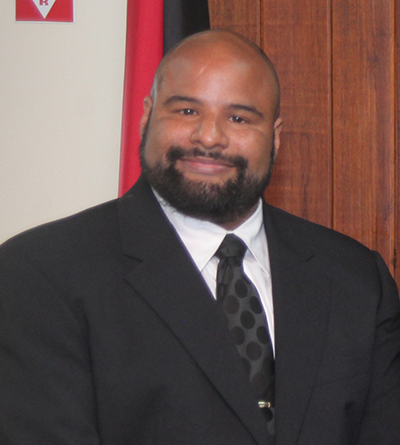(Trinidad Guardian) We will pay back the taxpayers.
This was the assurance given by representative for CL Financial (CLF) shareholders Carlton Reis, moments after the Government last night lost its bid to appoint a pair of provisional liquidators to recoup the remaining $15 billion it spent to bail out the company’s cash-strapped subsidiary Clico since 2009.
Delivering an oral decision on the issue at the end of an intense and protracted hearing at the Hall of Justice, Port-of-Spain, which ended well past 9 pm, High Court Judge Kevin Ramcharan ruled that the move by the State was premature, as it was unable to adduce evidence over the propensity of the shareholders to dispose of the company’s assets in the event they regain control of the conglomerate’s board during a special general meeting carded for next Tuesday.
“In fact, the evidence suggests that they (the shareholders) are intent in repaying their creditors,” Ramcharan said.
Speaking briefly with reporters after the decision, Reis, who represents CLF majority shareholder Lawrence Duprey, said it was a major legal victory.
“We will form a team to negotiate with the Government to repay the taxpayers, which is what we always wanted to do. I don’t know why the Government went through all this stress about, but we always insisted we wanted to pay back the Government and we are going to do it,” Reis said.

Despite Ramcharan’s ruling, the Government still has a lifeline in recouping its investment through liquidation, as its winding up petition against the company is still to be determined. However, the process would be time consuming as the Government will have to adduce evidence to justify its bid and await Ramcharan’s eventual ruling and possible appeals, while the shareholders are in control of the company.
As part of his decision, Ramcharan gave his preliminary analysis of the possible success of the winding up petition.
“I would not say it is inevitable, because I may make another decision with the evidence before me. But right now that seems unlikely,” Ramcharan said.
The Government’s decision to file the application and the winding up petition was based on a move by the shareholders to regain control of the board.
As a condition of the bail-out, CLF’s shareholder’s agreement with the government had agreed to honour its subsidiary’s debt and allow government to select four members, including the chairman, to CLF’s seven-member board.
The agreement was renewed 17 times by the shareholders until they refused to agree to a further extension in February this year. The shareholders then made the move to change the composition based on Government’s refusal to consider a proposal for them to retake control of the company and renegotiate their debt repayment plan made in December last year.
At the meeting, scheduled for after the winding up petition comes up for hearing before Ramcharan on Tuesday, the shareholders are being asked to vote on whether Reis and Kirk Carpenter should be elected as additional members of the board. If successful, the shareholders would control majority interest with five members while the Government would remain with its original four board members.
In her submissions, head of the State’s legal team Deborah Peake, SC, denied the appointment would lead to a fire sale in which the company’s assets would be sold at undervalued prices. She said a provisional liquidator was different to a traditional liquidator, as the former was only empowered to ensure the company’s assets are not disposed of by its management whilst the winding up petition against the company is being determined.
“If anything is to be sold, it will be done with the court’s approval. The provisional liquidator would be breaching his duty if there is a fire sale,” Peake said.
In response, John Jeremie, SC, who led the team for the shareholders, who together have over 60 per cent stake in the company, warned that the appointment was a “drastic intrusion” that may have irreparable consequences on the company.
“A liquidator is an undertaker. There is no life after a liquidator becomes involved. The company dies,” Jeremie said.
He noted that Government was able to recover almost one third of the approximate $23 billion it expended on the bail-out while it was in effective control of its board.
The shareholders are also being represented by Ramesh Lawrence Maharaj, SC, while Ravi Heffes-Doon appeared alongside Peake.




